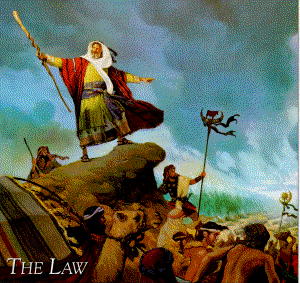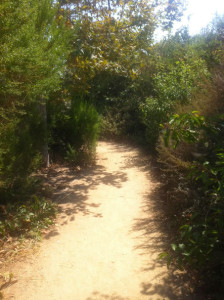Crime is escalating. Murders increasing. While some deny there’s a problem, those directly in charge are frantically searching for solutions. Meanwhile demands for change grow louder.
The increase is blamed on many things, such as Covid-19, decrease in police presence, easy access to guns, racism, lack of jobs, anger from hopelessness, and more.
Suggestions to reverse the trend include tighter gun control, heavier penalties for criminals, institutionalizing the mentally unstable, educating offenders, financial handouts, providing diversionary activities, and the list goes on.
Will any of these fix the problem? I believe it will take more than natural efforts to address the need effectively. I fear it will get worse before it gets better.
Our fight is not against guns or a political party. It’s not against criminals or even flesh and blood. As the apostle Paul puts it, we wrestle against “principalities, against powers, against the rulers of the darkness of this age, against spiritual hosts of wickedness in the heavenly places” (Eph 6:12).
We are in a spiritual battle. Evil spirits will not be defeated by taking away guns, increasing education, providing activities, or strengthening laws and punishments.
Changes need to be made, but first we need to change our focus and attend to spiritual issues. That is the only way we can get to the root of the problem.
How did we get to where we are? The simple answer is sin, but we took some significant specific steps in our recent past that determined our course.
In 1962, we outlawed school-sponsored prayer in public schools. In so doing, we took an official position that pushed God to the side.
God said, “Thou shalt not kill” (Deut. 20:13), but in 1973, as a nation we approved the killing of babies in the womb. Recently the boundary was further relaxed, as some states legalized murdering babies postpartum. Medically assisted suicide is also now sanctioned in 11 states.
Ignoring God’s commandment opened the gates to principalities and powers. Legalizing murder invited evil spirits in, giving them legal ground to operate in our midst.
Our nation has recently embraced lawlessness. Some government officials have allowed, publicly approved, and at times even assisted in criminal destruction of personal property, businesses, government buildings, and the officials who are hired to uphold the law. As our elected officials, their actions involve all of us, even when we don’t agree.
For decades, moral guidelines have been eroding, with things normalized that were unthinkable as recently as at the turn of the century. Formerly unacceptable standards are now being embraced, taught, and pushed on young children in our schools.
Progress toward true racial integration is being disrupted by new tension and turmoil. In addition, theft, discord, hatred, dishonesty, name-calling, and use of gutter talk by public figures has become the norm.
We are now seeing what happens when we turn our backs on the living God and choose to embrace evil instead. Evil is rampant in our midst.
It’s threatening to destroy all that we stand for. The world as we know it seems to be falling apart. What can we do besides watch it crumble?
When speaking of the devil, Jesus said, “The thief does not come except to steal, and to kill, and to destroy. I have come that they may have life, and that they may have it more abundantly” (Jn. 10:10).
What a contrast! Life versus stealing, killing, and destruction. What have we chosen? Life? Or death?
As a nation, we’ve apparently chosen stealing, destruction, and death.
The good news is that the “thief” and the principalities and powers who do his bidding do not have the last word.
The enemy has been defeated. Jesus won the victory on the cross. His power is far superior to any evil spirits that seek control. As believers we must choose life over death.
It’s tempting to grumble and wring our hands in dismay at daily news reports; or, we can refuse to watch the news. But we have a choice. We can look to the living God for answers. Instead of shaking our heads in disbelief, we can stand firm on the Rock and in the life He gives.
Paul’s preceded his insight about wrestling with principalities and powers by saying, “Put on the whole armor of God, that you may be able to stand against the wiles of the devil” (Eph. 6:11).
Afterwards, he tells us, “Therefore take up the whole armor of God, that you may be able to withstand in the evil day, and having done all, to stand. Stand therefore, . . . “ (Eph. 6:13-14a). Stand.
God is still sovereign. Stand. Put on your armor and stand with God. Don’t be sucked in by evil. But how do we stand?
Paul continues with a description of the armor of God in terms of our need to put on truth, righteousness, peace, faith, salvation, and the Spirit of God, and with an encouragement to pray “always with prayer and supplication” (Eph. 6:14-18). We “put on” those qualities as we look to Jesus and abide in Him, drawing from Him even as the branch draws life from the vine.
Changes need to be made in our society, but we’re not helpless and it isn’t hopeless. Jesus has already defeated the principalities and powers of darkness.
He won the victory through His crucifiction and resurrection. If we are children of God, we are co-heirs with Jesus. We can enjoy that victory with Him.
If we put on the armor of God, pray with prayers of supplication, keep our eyes on King Jesus, and march in step with Him, we will be filled with expectation to see what He will do. In His time, we will see the victory!
Looking around at what is happening, it’s easy to believe we gone too far, to not have hope. But think about it, what was it like for the Israelites when they reached the Red Sea with the army advancing behind them? What did they see to give them hope? It seemed hopeless with a sea in front of them, rugged mountains on each side, and an army in chariots charging from behind. But God delivered them.
Years later, the helpless army of Israel fled from Goliath for days—until a lad with faith in God volunteered to face the giant with his slingshot. Did Gideon have confidence of victory when God called him to action? Likewise, Jehoshaphat knew he was doomed with kings joining together to defeat him. But he wasn’t without hope; he cried out to God to come to His aid.
We serve the same God, and He doesn’t change. If there was hope for them, there is hope today. Our hope is in God, not in the circumstances.
The kingdom of God is righteousness, peace, and joy. Jesus brings life, not death and destruction. Let’s stand on God’s side. Let us march in step with Jesus so we will be filled with hope–and will see His victory in our midst.
May the Almighty God be glorified so the world will know that He is God!
 r disease? The unknown? The list could fill the page. Some fears are rational, some irrational, but I’d guess that we’ve all faced fears at some point in our lives.
r disease? The unknown? The list could fill the page. Some fears are rational, some irrational, but I’d guess that we’ve all faced fears at some point in our lives. God is real, more real than anything earthly we experience, any trial we face, any fear we have. Furthermore, He’s unchanging. He’s the same yesterday, today, and forever (Heb 13:8).
God is real, more real than anything earthly we experience, any trial we face, any fear we have. Furthermore, He’s unchanging. He’s the same yesterday, today, and forever (Heb 13:8). I want to love God with all that I am and to more completely know God’s love, so that my life is dictated by that love.
I want to love God with all that I am and to more completely know God’s love, so that my life is dictated by that love. filling the airwaves and is even evident in political crowds, but I tend to agree with Lall. Something happened several years ago that led me to believe fear is the real issue.
filling the airwaves and is even evident in political crowds, but I tend to agree with Lall. Something happened several years ago that led me to believe fear is the real issue. Sea and the Egyptian army—a position of sure doom—Moses said, “Do not be afraid. Stand still, and see the salvation of the Lord, which He will accomplish for you today. For the Egyptians whom you see today, you shall see again no more forever. The Lord will fight for you, and you shall hold your peace” (Exod. 14:13-14).
Sea and the Egyptian army—a position of sure doom—Moses said, “Do not be afraid. Stand still, and see the salvation of the Lord, which He will accomplish for you today. For the Egyptians whom you see today, you shall see again no more forever. The Lord will fight for you, and you shall hold your peace” (Exod. 14:13-14). “For God has not given us a spirit of fear, but of power and of love and of a sound mind” (2 Tim. 1:7), and “He will ever be mindful of His covenant* (Ps. 111:5).
“For God has not given us a spirit of fear, but of power and of love and of a sound mind” (2 Tim. 1:7), and “He will ever be mindful of His covenant* (Ps. 111:5).
 Him, it won’t get rid of our flesh. We won’t be perfect. We’ll still have weaknesses.
Him, it won’t get rid of our flesh. We won’t be perfect. We’ll still have weaknesses.
 It complicated the squirrel’s progress. If he was on the limb and somebody got too close, he’d freeze, flattening himself from his nose to the tip of his tail, trying to disappear. He resumed work only after he knew danger had passed.
It complicated the squirrel’s progress. If he was on the limb and somebody got too close, he’d freeze, flattening himself from his nose to the tip of his tail, trying to disappear. He resumed work only after he knew danger had passed.
 However, my spirit soars when I turn my gaze on the Lord and remember that He is with me, that I am His, and He is my shield. I am strengthened and my fear subsides. When I read of His faithfulness in the Word, confidence and peace increase.
However, my spirit soars when I turn my gaze on the Lord and remember that He is with me, that I am His, and He is my shield. I am strengthened and my fear subsides. When I read of His faithfulness in the Word, confidence and peace increase. relationships with God and with each other. It seems the world is fighting to destroy Christianity with carefully aimed attacks against faith and obedience to God. However, our greatest danger might actually be hidden traps that could ensnare us.
relationships with God and with each other. It seems the world is fighting to destroy Christianity with carefully aimed attacks against faith and obedience to God. However, our greatest danger might actually be hidden traps that could ensnare us.
